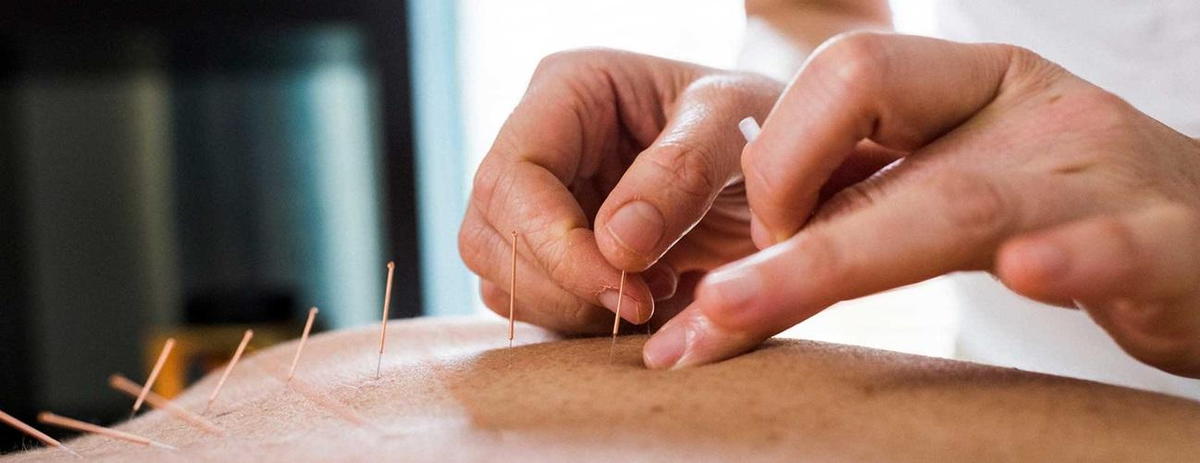- posted: Nov. 30, 2023
 JOHNS HOPKINS MEDICINEMENU
JOHNS HOPKINS MEDICINEMENUWhat is acupuncture?
Studies have shown that acupuncture is effective for a variety of conditions.
What does acupuncture feel like?
Impulses of electromagnetic energy
How does acupuncture affect the body?
Nausea caused by surgical anesthesia and cancer chemotherapy
It may also help with stroke rehabilitation.
What conditions may benefit from acupuncture?
DigestiveEmotionalGastritisIrritable bowel syndrome
Hepatitis
HemorrhoidsAnxiety
Depression
Insomnia
Nervousness
NeurosisEye-Ear-ThroatGynecologicalRhinitis
Sinusitis
Sore throatMenstrual pain
InfertilityMusculoskeletalNeurologicalArthritis
Back pain
Muscle cramping
Muscle pain and weakness
Neck pain
SciaticaHeadaches
Migraines
Neurogenic bladder dysfunction
Parkinson's disease
Postoperative pain
StrokeRespiratoryMiscellaneousAllergic rhinitis
Sinusitis
BronchitisIrritable bladder
Prostatitis
Male infertility
Some forms of impotence
Addiction
Considerations when choosing acupuncture
Locations
Find us on the map
--mi
Dr. Paul A. Mandich
Address
2625 45th Street
Highland, IN, US
Office Hours
Our Regular Schedule
Monday
Closed
Tuesday
8:00 am - 5:00 pm
Wednesday
Closed
Thursday
8:00 AM - 5:00pm
Friday
Closed
Saturday
Closed
Sunday
Closed
Monday
Closed
Tuesday
8:00 am - 5:00 pm
Wednesday
Closed
Thursday
8:00 AM - 5:00pm
Friday
Closed
Saturday
Closed
Sunday
Closed

